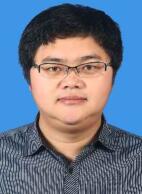
2018 International Conference on Applied Biochemistry and Biotechnology (ABB 2018)

 |
Prof. Dr. Zhongming Fang, Center of Applied Biotechnology, Wuhan Institute of Bioengineering, Wuhan 430415, China Zhongming Fang was born in Huangshan city, China and has Bachelor in Biology and PhD in Biochemistry and molecular biology at the University of Chinese Academy of Sciences. He did a post-doctoral at Huazhong Agricultural University, to study rice genetic improvement. Nowadays he is associate professor at the Center of Applied Biotechnology, Wuhan Institute of Bioengineering, China. He created a Laboratory of crop type and yield regulation mainly on rice. He teaches molecular biology, and Genetic engineering for undergraduate students in Biology, and supervises the experiment and writing for postgraduate students. He has experience in Plant Science area, especially Molecular biology and Biotechnology of rice. The results of their research were published more than 20 papers in national and international journals, such as Plant Biotechnology Journal and Frontiers in Plant Science. He has applied more than 20 national invention patents in the field of gene for regulation of rice grain yield. |
Speech Title: Altered expression of nitrogen transporters improves grain yield by increasing tiller number in rice Abstract: Rice tiller number is one of the most important components that determined grain yield, and nitrogen is essential for crop growth and development. NPF (NRT1/PTR family) and AAT (Amino acid transporter) play indispensable roles in nutrient uptake and allocation for plants. Although the functions of many NPF and AAT transporter members in Arabidopsis have been identified, few studies have investigated in rice. In this study, we report that altered expression of some NPF and AAT transporter members could improve grain yield by promoting outgrowth bud and increasing tiller number in rice. We constructed over-expression (OE) lines, RNA-interference (Ri) and mutant lines for NPF and AAT transporter members, did the hydroponic culture, field experiment for outgrowth bud of all transgenic plants, and analyzed the nitrogen and amino acids. The result showed that the grain yield and nitrogen use efficiency (NUE) can be improved through the over-expression of NPFs or the knockout of OsAATs by CRISPR technology to increase the rice tiller number, within Japonica rice ZH11 and KY131. These results suggest that nitrogen transporters hold potential in improving grain yield and NUE for rice breeding. |
|
 |
Prof. Dr. Wim J. Quax, University of Groningen, Dept. Chemical & Pharmaceutical Biology, The Netherlands Prof. Dr. Wim J. Quax received his PhD degree in Biochemistry at the University of Nijmegen (The Netherlands). After fulfilling several research positions in industry and academia he was appointed to full professor in Pharmaceutical Biology at the University of Groningen in 1998. Prof. Quax heads an active research line on using directed evolution and protein design technology for researching pharmaceutically relevant proteins. One of his focus areas is ligands of the Tumor Necrosis Factor (TNF)-family, which play an important role in proliferation and apoptosis. Prof. Quax has published > 300 peer reviewed papers and book chapters and he is named inventor on > 45 patents. In the period 2010-2016 he was director of the Groningen Research Institute for Pharmacy (GRIP). |
Speech Title: Engineering TNF-ligands: Novel RANKL DE-loop mutants antagonize RANK-mediated osteoclastogenesis Abstract: Bone is a dynamic tissue that is maintained by continuous renewal. An imbalance in bone resorption and bone formation can lead to a range of disorders, such as osteoporosis. The Receptor Activator of NF-κB (RANK)-RANK ligand (RANKL) pathway plays a major role in bone remodeling. Protein engineering of TNF-ligands has been shown to be a promising strategy to obtain novel pharmaceuticals. Here, we investigated the effect of mutations of murine RANKL on the interaction of RANKL with RANK, and on subsequent activation of osteoclastogenesis. Two single mutants were found to maintain binding and have the ability to antagonize wild type RANKL-induced osteoclastogenesis. The potential therapeutic use of TNF-ligand mutants will be discussed. Keywords: RANK, RANKL, bone homeostasis, osteoporosis, antagonist |
|